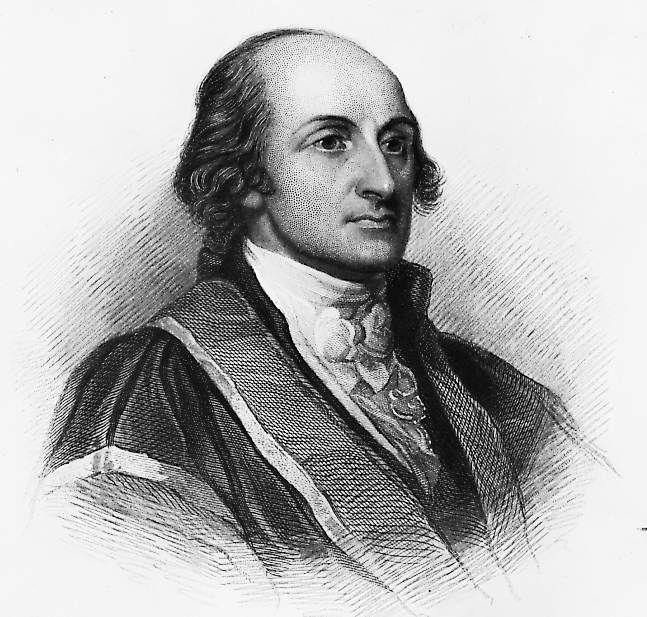Jay, John (1745-1829), was a distinguished statesman during the early days of the United States. He became the first chief justice of the United States under the U.S. Constitution. Jay’s judgment and fairness and his courage in making unpopular decisions made him a valued diplomat and respected political figure.

Jay was born in New York City on Dec. 12, 1745. He graduated from King’s College (now Columbia University) in 1764. Jay studied law and was admitted to the bar in 1768. He later became a New York delegate to the First and Second Continental Congresses. Jay served as president of the Continental Congress from December 1778 until September 1779, when he was appointed U.S. minister to Spain. He later helped negotiate the Treaty of Paris with Great Britain. This treaty, which ended the American Revolution (1775-1783), was signed in 1783.
When Jay returned to the United States, he found that Congress had chosen him as secretary of foreign affairs. Jay’s experiences as a diplomat in Europe convinced him that the United States needed a stronger central government. He thus joined Alexander Hamilton and James Madison in writing letters to newspapers urging ratification of the Constitution (see Federalist, The ).
In 1789, President George Washington appointed Jay chief justice of the United States. While still chief justice, Jay went to Great Britain in 1794 to negotiate a settlement of issues between the two nations. The Jay Treaty greatly improved U.S. relations with Britain (see Jay Treaty ). In 1795, Jay was elected governor of New York. He served two terms and retired in 1801. Jay died on May 17, 1829.
